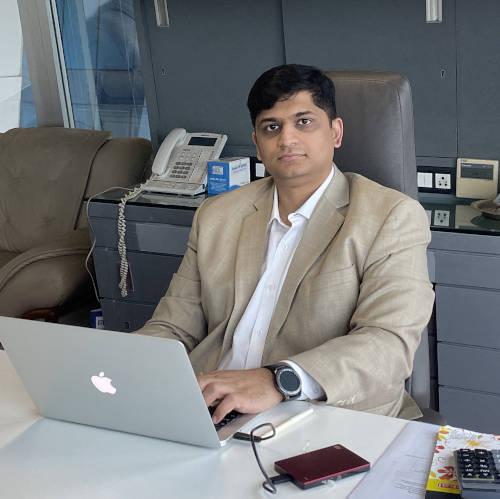For Siddharth Shah, a 41-year-old engineer from Mumbai, water technology is a new area of business, quite different from his traditional family enterprises of making, among other things, telecom products, electrical panels and furniture. He is the fifth generation to come up with a new start-up venture. With the growing incidence of water contamination and water scarcity in India, Airowater Private Limited (APL), a pioneer in atmospheric water generation, has set its sights on capturing a large share of the market in India and overseas. Product demand in India is anticipated to reach $300 million by 2027, due to rapid industrial growth, coupled with increasing construction and manufacturing activities. APL plans to raise $20 million from global investors for its R&D, sales and marketing network, as also to increase production capacity. The world water market was estimated at $743.77 billion in 2019 and APL has set a target to achieve at least one per cent of this. By 2025, the demand for drinking water in India is expected to touch 62 billion litres. APL is all set to tap this opportunity using its innovative, sustainable and affordable solutions to meet the increasing demand for fresh water. Spread across 100,000 sq ft, the company’s plant is located at Bhiwandi, Maharashtra and employs 300 people. Its atmospheric water generator (AWG) is an environment-friendly machine, easy to install and uncomplicated to maintain – similar to air-conditioners – and its air filters can be cleaned every quarter by any service team. The cost of the machine breaks even in three years, with the smallest machine, at 25 litres, costing Rs50,000 and the larger machine, of 1,000 litres, going up to Rs9 lakh. APL has already installed these machines at more than 200 locations. “The increasing incidents of contamination and scarcity of water in India make it important for us to adopt newer sources of water generation that do not harm natural resources and are, at the same time, pure,” says Siddharth Shah, director, APL. “With our unique technology, APL is well placed to cater to the demand for such a solution that is relevant for India’s future. This gives us the confidence that we will attract faster growth not only in India but also in global markets, which face similar issues.” Depleting water source According to a recent study, by 2025 over 1.8 billion people will be living in countries, where severe water scarcity exists. Over two-thirds of the world’s population will face water shortages and India will be no exception. The digging of borewells has resulted in the lowering of groundwater. India ranks 13 among the 17 worst-affected countries in terms of water crises. The Niti Aayog report reveals that 21 major cities of India will be out of water by next year. The government, under its ‘Jal Shakti Abhiyan’ has also underlined the need for freshwater for each and every household.
-

The increasing incidents of contamination and scarcity of water in India make it important to adopt newer sources of water generation


































